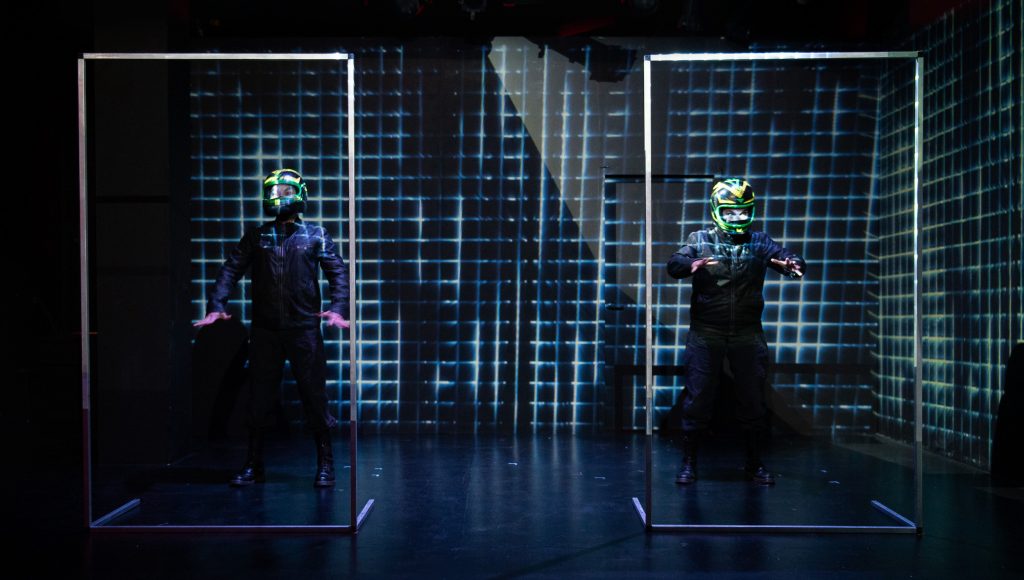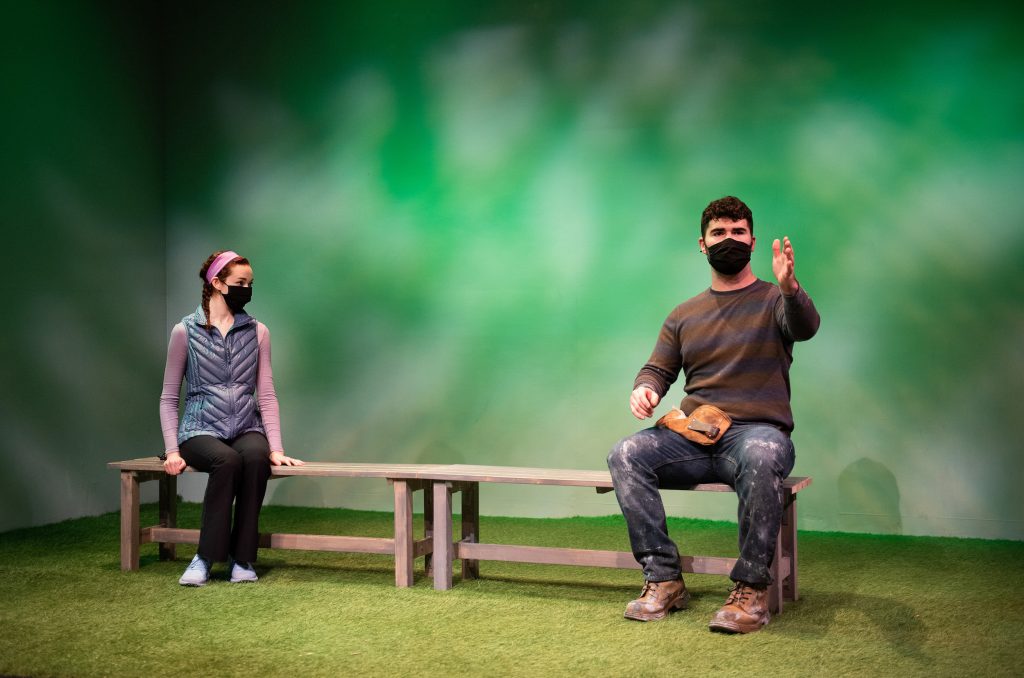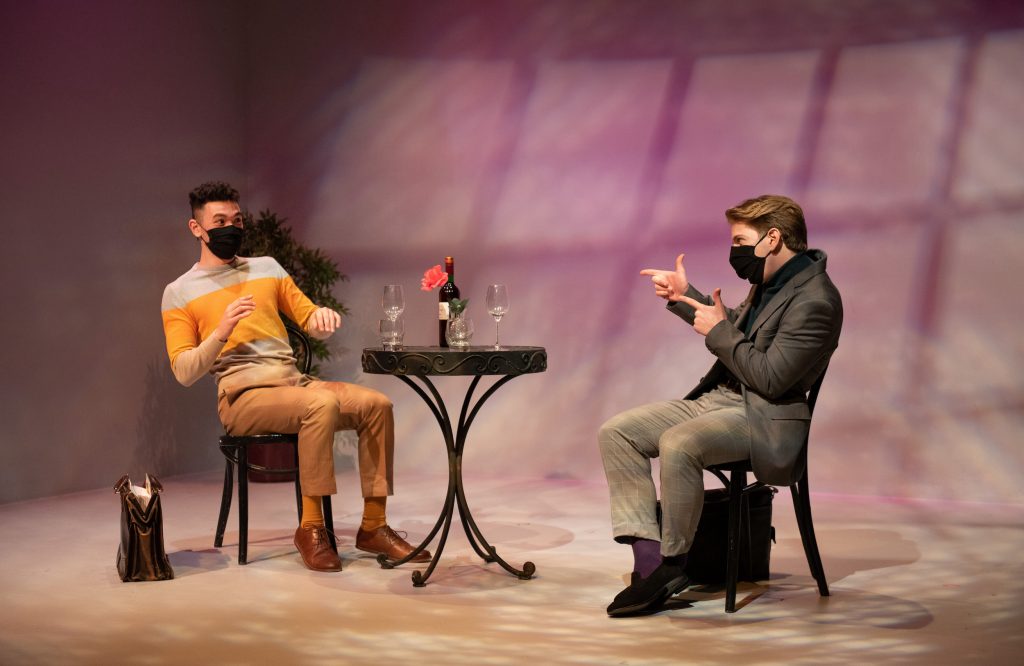
Credit: Emily Cooper
Streaming online from Studio 58 until March 7, 2021. (Extended until March 31, 2021)
Free. Donations welcome. Info: www.tomorrowlove58.com
Posted March 6, 2021
“We are in the beginning stages of the digital revolution. This revolution will change us fundamentally and profoundly as a species, even more than the industrial revolution did.” This is how directors Shekhar Paleja and Lauren Taylor begin the directors’ notes for TomorrowLove.
Written by Canadian playwright Rosamund Small, TomorrowLove is made up of thirteen playlets ranging in length from fifteen minutes to an hour. Bound together by the theme of relationships, each short work introduces a not-yet-invented technology that will alter the relationship of the characters. Initially written and produced for stage, this Studio 58 production is filmed and the viewer is free to watch all of the pieces or some of them and in whatever order they wish. In an interview with Small, she is quoted as saying, “I wrote all of the characters to be gender blind, so they are not necessarily man or woman. I just didn’t make that decision when I was writing it.” The characters in each playlet, therefore, are completely interchangeable.
The first one I sampled was Just Like a Movie in which Adrian (Silken Lawson) and Mischa (Sofie Kane) are in a waiting room. They have only been a couple for a year but Mischa, who has a terminal ailment, wants to make a film montage of her memories as a gift to Adrian before she dies. Something to remember her by. This is made possible because of some new technology. But is it a good idea and will she have control over what memories become part of the movie. The time when she stole “some stuff”? And will the memory montage bring them closer together or drive them apart?

Credit: Emily Cooper
The new technology introduced in Tell Me You Hate Me is a Don’tSpeak microchip planted in the brain that prevents a person from saying what they don’t want to say – like “I hate you”. Developed for those with Tourette’s Syndrome, the Don’tSpeak technology is available to everyone who wants it. So who has the imbedded chip: Bryce or Mack? And in the heat of an argument, is it possible to say “I hate you” when you actually – also – love them? Will Don’tSpeak prevent honesty?
The last of the three I watched was Fast Forward: time travel is now available to the public at a price. A woman goes into space and, at speed, doesn’t age while the 12-year-old boy she was in love with grows older, marries, has a child, divorces, starts a business and turns thirty-one. Robin (Katherine Matlashewski) and Bailey (Tanner Zerr) meet and argue at a place they designated nineteen years ago when Robin set off into space. Again, the characters are interchangeable: it could be a much older man in love with a twelve-year-old girl. Now that Robin and Bailey are the same age, can it work between them? Or has life experience changed them irrevocably?

Credit: Emily Cooper
TomorrowLove is appropriate material for the Studio 58 students who will almost certainly have to live – or ‘get’ to live – with some of the technology the playwright plays around with.
If devices can already be implanted in human chests to keep hearts beating, can Don’tSpeak be far behind? Or if our Smart phones can put together ‘Memories’ for us from our library of photos and if Guy Laliberte, the founder of Cirque du Soleil, can pay his way onto a space ship, public travel into the galaxy is probably not far off.
TomorrowLove is the place where romance meets technology – technology that, for all we know, is already in the works.

